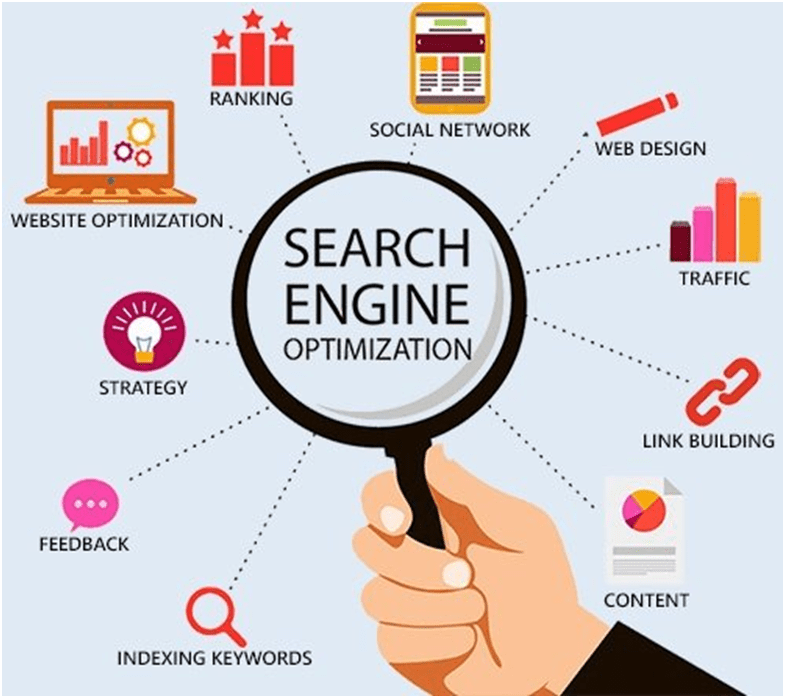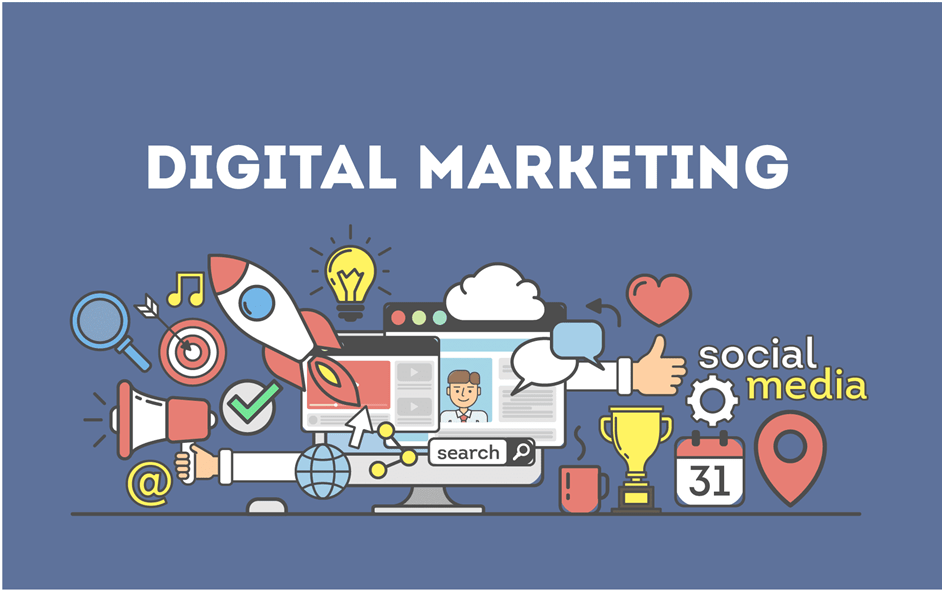In the ever-evolving landscape of digital marketing, the year 2024 marks a pivotal juncture where businesses must harness the power of key pillars to thrive in an increasingly competitive digital system. To organically attract qualified professionals, you need to use SEO to improve lead generation. Moreover, affiliate marketing is a key plan, enabling brands to amplify their reach and drive conversions through strategic partnerships. Collaborating with affiliates empowers businesses to tap into diverse networks, expanding their audience reach and fostering sustainable growth.
Furthermore, the pervasive influence of social media continues to shape consumer behaviors and brand perceptions. From community-building on platforms like Facebook and Twitter to immersive storytelling on Instagram and TikTok, social media remains an indispensable tool for engaging with audiences and building brand affinity. In this article, we delve into the intricate interplay of these pillars—SEO, affiliate marketing, and social media—providing valuable insights and strategies to equip businesses for success in the dynamic digital landscape of 2024 and beyond.
Use of SEO in Digital Marketing
Search engine optimization (SEO) is a crucial tactic in the enormous world of digital marketing; it has tremendous power to increase visibility, boost conversions, and drive organic traffic. The importance of SEO in a company’s marketing strategy is growing since the digital landscape is constantly changing. In this section, we will go over five important aspects of SEO that show how important it is for digital marketing, including data security, B2B marketing, and more:
- Data security in marketing. In an age of growing worries about data privacy and security, companies that employ strong SEO strategies guarantee that their customer’s personal information is protected. A company can gain credibility and trust from its target audience by making its websites secure, using HTTPS protocols, and putting user privacy first. This shows that they care about data protection.
- B2B marketing. In the world of business-to-business (B2B) marketing, SEO is crucial for generating high-quality leads and sustaining important customer connections. Businesses can better position themselves as leaders in their sector and increase their exposure in the B2B ecosystem by improving the content of their websites with relevant keywords. Strategic content optimization and link-building also increase trust in the brand, which is essential for establishing genuine relationships with B2B customers.
- Content marketing. The effectiveness of SEO and content marketing is mutually beneficial. Optimized, high-quality content does double duty: it boosts SEO and informs and engages the intended audience, which in turn increases exposure for the business and builds confidence among consumers. Maximizing the reach and effect of content marketing initiatives, organizations may drive conversions and cultivate long-term customer connections by implementing SEO best practices into content development processes.
- Influencer marketing. When it comes to influencer marketing, search engine optimization is vital for increasing the exposure and audience size of brands. Increase discoverability and organic traffic by working with influencers whose interests match those of your target audience and by optimizing their content for relevant keywords. Brands may expand their digital reach, engagement, and conversion rates by incorporating SEO concepts into influencer engagements.

Source: Quora
Use of Affiliate Marketing in Digital Marketing
Within the complex network of digital marketing tactics, affiliate marketing stands out as a potent weapon for companies aiming to broaden their audience, increase sales, and optimize return on investment. By working together, companies and affiliates can increase exposure for both parties’ products and services, which in turn boosts revenue. We will go over five important factors that explain the role of affiliate marketing in the modern digital world. These topics range from using marketing automation to simplify campaigns to improving email marketing through behavioral segmentation and are divided into the following points:
- Behavioral segmentation. With affiliate marketing, you can take advantage of behavioral segmentation in a way that isn’t possible with traditional email marketing, that’s why boost your email marketing with behavioral segmentation. Businesses can customize email marketing to appeal to certain client categories by partnering with affiliates that have specialty expertise and segmented audience demographics.
- Track affiliate links. Accurately tracking affiliate links and measuring performance indicators is crucial for affiliate marketing to be successful. Businesses may learn a lot about the success of affiliate marketing by keeping tabs on the traffic, clicks, and conversions that affiliates bring in. This data allows organizations to optimize their affiliate agreements for optimal return on investment (ROI), make informed decisions, and obtain useful insights into how productive their affiliates are.
- Inbound marketing. By combining affiliate marketing with inbound marketing tactics, you may increase the number of qualified leads you receive and strengthen your relationships with existing customers. Businesses can attract relevant audiences looking for solutions to their problems by forming partnerships with affiliates that produce useful, helpful content.
- Marketing automation. Campaign management is made easier and more efficient with the help of marketing automation when it is integrated into affiliate marketing workflows. Streamlining administrative procedures and automating affiliate onboarding, tracking, and rewards allows more time for strategic optimization and relationship-building.
- Online advertising. To boost a company’s visibility online and attract qualified customers to their digital assets, affiliate marketing is a great addition to paid internet advertising. Affiliates that focus on pay-per-click (PPC), display ads, or sponsored content can help businesses increase their visibility online and attract more customers.
Use of Social Media in Digital Marketing
Since social media evolved into a potent online advertising tool, the way businesses engage with their customers has undergone a significant shift. You can reach, communicate with, and convert more potential customers more thoroughly by integrating social media into an all-in-one marketing platform.
Call analytics for digital marketing are one of the most crucial components of digital marketing when it comes to leveraging social media for a company. Companies that monitor and analyze call data derived from social media activity can gain valuable insights into the preferences, aversions, and conversion rates of their clientele. Marketers may utilize this data-driven strategy to target the correct audiences, enhance strategies, and allocate resources more effectively, all of which will increase campaign effectiveness and return on investment (ROI).

Source: Springboard
Using social media advertising platforms is a key component of outbound marketing strategies. Businesses can advertise on social media platforms such as Facebook, Instagram, Twitter, LinkedIn, and many more. This enables them to create advertisements with extremely precise goals. Businesses can leverage online behaviors, interests, and demographics to better engage with the audiences they wish to reach. This promotes the expansion of involvement, prospects, and sales.
With the constant release of new technology, social media marketing adapts to stay relevant. Users now have more avenues for communication and connection. Among the newest technologies that companies may utilize to engage their clients are chatbots, virtual influencers, and augmented reality filters. Embracing emerging technologies allows marketers to differentiate their brands, stay one step ahead of the competition, and cultivate genuine connections with clients.
Phonexa on Social Networks
In this day and age of technology, businesses use social media to actively promote their goods and interact with customers. Phonexa strengthens its position as the leading provider of marketing solutions by showing off its wide range of digital marketing tools and lead analytics software across multiple platforms. The people that Phonexa wants to reach are successfully engaged through the use of social media sites like Facebook, Twitter, LinkedIn, and Instagram. It shows how revolutionary its solutions can be in several areas, such as PPC advertising, email marketing tools, and mobile marketing.
Phonexa’s social media platforms give professionals looking for answers access to them by using the company’s reputation as a leader in lead analytics tools. By giving thought-provoking presentations, interesting case studies, and real-life successes, Telephone promotes itself as a reliable authority for businesses that want to improve their marketing efforts.

Source: Phonexa
Instead of using traditional advertising methods, Phonexa’s social media strategy focuses on giving their followers real value. You can get a better return on investment (ROI) from your mobile marketing efforts, get the most out of your email marketing tools, and learn more about pay-per-click (PPC) advertising by using these useful tips, lessons, and guidelines. Phonexa builds a community of marketers who want to stay current in the digital world, which is changing quickly, by posting interesting material and starting interesting conversations.
When Phonexa uses social media platforms well, it shows that the business is dedicated to giving customers the latest solutions and useful information. Phonexa shows how skilled it is by using a variety of platforms with ease. This helps the field of digital marketing make progress and come up with new ideas all the time.
Conclusion
As businesses navigate the dynamic landscape of digital marketing in 2024, the pillars of success remain steadfast. Automated email marketing, lead generation companies, email automation, and data analytics tools stand as the foundation upon which effective marketing strategies are built. By harnessing these pillars, businesses can streamline operations, optimize lead generation efforts, and drive engagement with their audience. As technology continues to evolve, staying abreast of the latest trends and advancements in these key areas will be paramount for achieving sustainable growth and maintaining a competitive edge in the ever-changing digital landscape.
